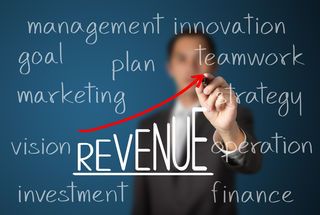The Title And Role Of Revenue Manager Should Be Transitioned To “Revenue Generation Manager”

If you asked most hoteliers to write up a job description for the position of Revenue Manager (RM), chances are the responsibilities listed would focus on controlling and “managing” revenue, as opposed to generating it. For example, the first tasks that most will think of would likely be setting rates and restrictions for transient segments, determining channel mix, calculating revenue-per-guest opportunities by segment, managing OTA’s and other electronic distribution channels, and providing sales staff with quotes for groups and functions.
It is time for the lodging industry to reimagine both the title and role and to transition from Revenue Manager, which implies a passive role in “managing” revenue that is generated elsewhere, to a more active label as “Revenue Generator Manager” (RGM). While we’re at it, perhaps our leading association, HSMAI, should even rename its Revenue Optimization Conference as the Revenue Generation Conference!
Now granted, many forward-thinking lodging companies have already evolved the title and position such as Director of Revenue Strategy or simply Director (or VP) of Revenue. Some have made what in my opinion is the ideal move, which is to have both sales and marketing either report to a Director of Revenue, or at smaller properties, to simply combine the positions. Yet too many hospitality leaders still hold an outdated view more befitting of the 1990’s era term of “Yield Management.”
Of course, the role of RM’s, as well as the revenue-generating opportunities, varies greatly by property according to factors such as:
- Size of lodging operations. Obviously, properties that have fewer rooms will have fewer leadership roles, so the standard RGM’s job would likely include operational, sales and marketing responsibilities, whereas at larger properties they would oversee a team.
- Meeting space and room categories. Properties having lots of space for meetings and events, plus numerous accommodation types, will therefore have more resources from which to generate revenue and more choices on how to maximize total revenue vs. just RevPAR.
- Number of revenue-generating outlets. The more outlets, the greater the number of opportunities to generate more revenue-per-guest from F&B, spa, recreational activities, retail and in-house events.
- Location, and thus market segment opportunities. RGM’s at properties in destinations that appeal to multiple segments can leverage corporate group, leisure group, corporate & business travel, and transient social segments, whereas RGM’s at properties that serve primarily only one segment will have fewer opportunities.
Regardless though, the objective for this position should always be focused on proactively generating revenue rather than simply “managing” revenue that is generated by others.
Now, while we are at it, the time is now to also look at the skill sets, training and educational focus for those our industry is grooming for a role as Revenue Generation Managers. As the collection and evaluation of data used to set and adjust rates is increasingly automated, perhaps it's time for our industry to utilize the skill-sets that most RM’s already have and further develop them.
Whereas too many traditional (property level) RM’s these days are bogged down with tasks that could be handled by others, such as manually loading rates, dealing with charge-backs and responding to bad reviews, most have talents that could be utilized to generate additional revenue.
For example, many of the RM’s I’ve met are masters at process, whereas a lot of Directors of Sales are masters of the “people parts.” Seems to me more likely that our current RM’s would be excited about digging in to the features and functions of a sales CRM in order to deploy it correctly, thus enabling salespeople to follow up proactively on leads in a way that is both tenacious and personalized.
Likewise, many RM’s may have the better skillsets at creating and deploying email campaigns, diving into whatever latest changes Google will be continuing to make to paid search options or dealing with the coming impact the elimination of third-party cookies will have on cross-site tracking, ad-serving, retargeting and overall digital marketing.
Because many of our industry’s best revenue leaders have come up through the ranks of hotel operations as well as sales, given an updated title and role as Revenue Generation Managers, they can also assist with helping all hotel staff maximize other overlooked revenue-generating opportunities, which I will cover soon in another article in this publication.
Now before I conclude this article, my intention is certainly not to stereotype the roles and job duties currently in place. While there are too many with the title of revenue manager who are stuck in the limited, outdated role of essentially managing “yields,” there are also plenty of forward-thinking RMs, and for that matter also forward-thinking Directors of Sales, who already focus on the overall big picture strategy of generating total hotel revenue, so for these folks it may just be a matter of updating their title to Revenue Generation Managers.